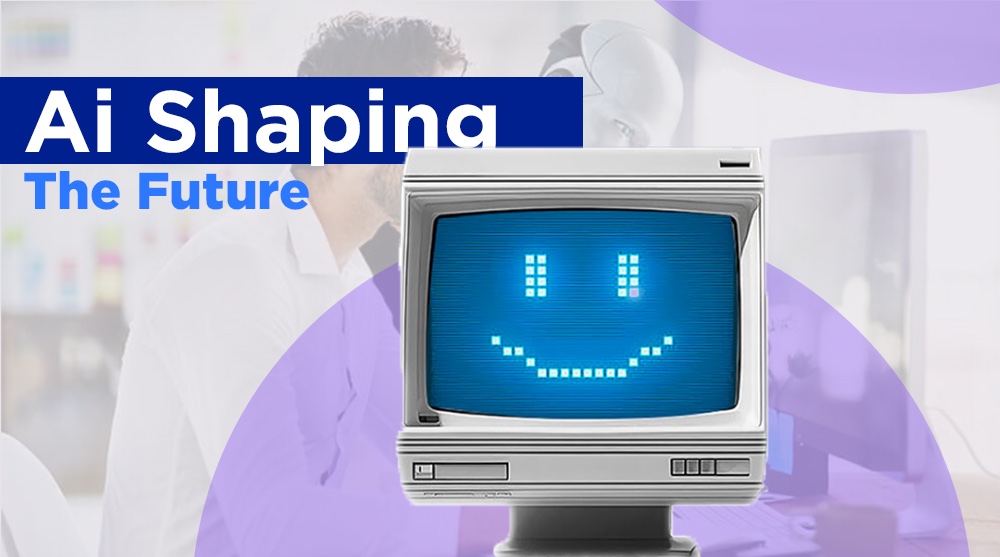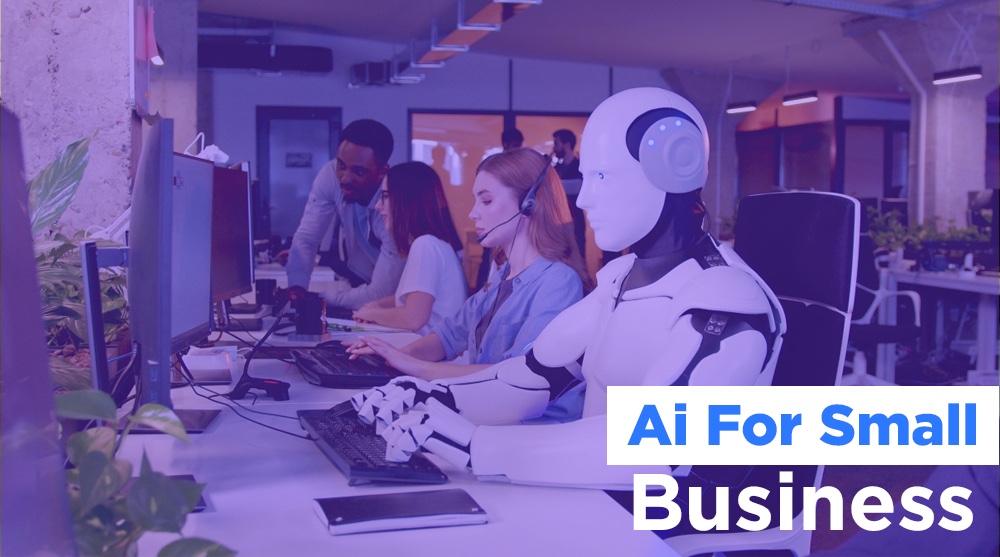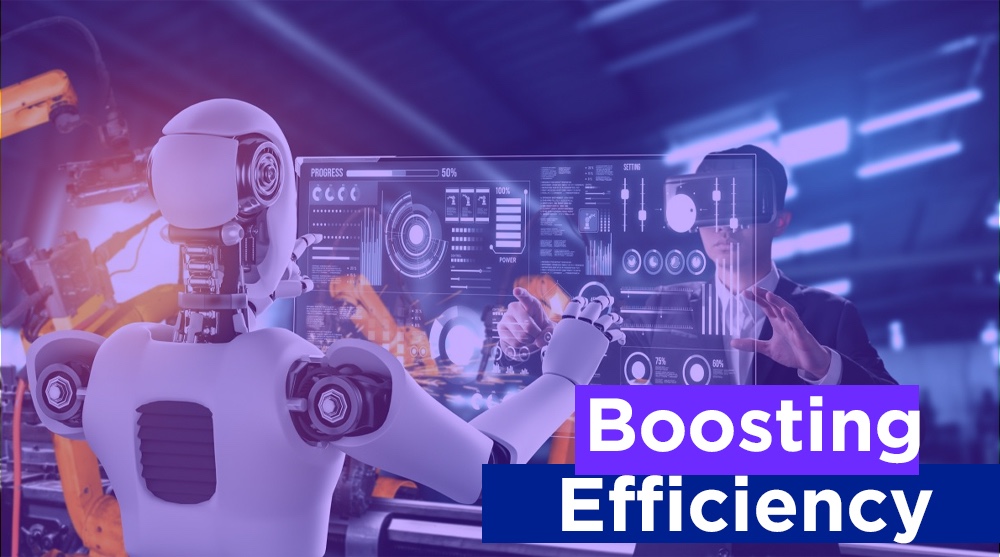How AI is Revolutionizing Business Efficiency in 2024
Artificial Intelligence (AI) is no longer a futuristic concept confined to science fiction. Today, it is a critical driver of innovation, transforming industries and reshaping how businesses operate. From automating repetitive tasks to enhancing decision-making processes, AI is at the forefront of improving business efficiency. In 2024, organizations are leveraging AI-powered tools and technologies to stay competitive, optimize operations, and increase productivity.
As companies continue to invest in AI, its potential to boost efficiency across all sectors—from healthcare and finance to retail and manufacturing—has never been more apparent. This article explores how AI is revolutionizing business efficiency in 2024 and the specific ways it is changing the way organizations function.
Automating Routine Tasks
One of the most significant ways AI is transforming business efficiency is through automation of repetitive tasks. Traditionally, many business operations—such as data entry, invoice processing, and customer inquiries—have been labor-intensive, taking up valuable time and resources. AI-driven automation tools are changing the game by handling these tasks with precision and speed, allowing employees to focus on more strategic and creative work.
For example, AI-powered software like Robotic Process Automation (RPA) can manage workflows by handling tasks such as managing payroll, scheduling meetings, or processing transactions. These systems can work 24/7, completing tasks more efficiently and accurately than human workers, thus reducing the likelihood of errors and lowering operational costs.
Enhancing Decision-Making with Data
Another critical benefit of AI is its ability to process and analyze massive amounts of data quickly and efficiently. In the business world, data-driven decision-making is vital for staying ahead of the competition. AI enables companies to analyze data from various sources and deliver insights that would be impossible or time-consuming for humans to generate manually.
With tools such as machine learning algorithms and advanced data analytics, businesses can better understand market trends, customer behaviors, and operational bottlenecks. AI can uncover hidden patterns and correlations within data, helping organizations make more informed decisions and fine-tune their strategies in real time.
For instance, retailers can use AI to analyze customer preferences and predict purchasing behaviors, allowing them to optimize stock levels, personalize marketing campaigns, and enhance the overall customer experience.
Improving Customer Service with AI Chatbots
One area where AI is having a particularly profound impact is customer service. AI-driven chatbots and virtual assistants are revolutionizing how companies interact with their customers, providing instant, round-the-clock support. Unlike human agents, chatbots can handle multiple inquiries simultaneously and respond within seconds, which dramatically reduces wait times and improves customer satisfaction.
AI chatbots are capable of handling a wide range of customer queries—from answering frequently asked questions to helping with product recommendations and troubleshooting. Through Natural Language Processing (NLP) and machine learning, these AI systems can continuously improve their responses by learning from each interaction, becoming more accurate and personalized over time.
Additionally, integrating AI chatbots into existing customer service platforms enables businesses to reduce costs associated with hiring and training human support staff, while also ensuring that customers receive timely and accurate assistance.
Optimizing Supply Chain Management
Efficient supply chain management is essential for businesses, especially in industries like manufacturing, retail, and logistics. AI is increasingly being utilized to optimize supply chain operations, ensuring products are delivered on time while minimizing costs. AI systems can forecast demand, analyze supplier performance, and even predict potential disruptions based on historical data.
By leveraging AI-powered predictive analytics, businesses can make more accurate forecasts regarding demand fluctuations and inventory needs. This helps reduce overstocking or understocking issues, which can negatively impact revenue. Moreover, AI can automate various elements of the supply chain, such as warehouse management, transportation scheduling, and order tracking, ensuring seamless and efficient operations.
Companies like Amazon have already implemented AI in their supply chains, using AI-driven robots and algorithms to streamline warehousing, picking, and packing processes. The result is faster delivery times and reduced operational costs, demonstrating the immense value of AI in improving supply chain efficiency.
AI-Powered Marketing and Personalization
Marketing is another area where AI is making waves. Businesses today collect vast amounts of data about their customers, including browsing history, purchasing habits, and social media activity. AI tools can analyze this data to create personalized marketing campaigns that resonate with individual customers, enhancing engagement and driving sales.
Through predictive analytics, AI can forecast customer preferences, helping businesses target the right audience with the right message at the right time. Whether it’s recommending products based on past purchases or optimizing email marketing campaigns for better conversion rates, AI enables companies to deliver highly personalized experiences.
Platforms such as Google Ads and Facebook’s advertising tools utilize AI to optimize ad targeting by analyzing user behavior and identifying patterns that lead to conversions. This ensures that marketing budgets are spent more efficiently, driving higher returns on investment (ROI).
Reducing Operational Costs
AI’s ability to streamline processes, improve accuracy, and reduce manual labor translates directly into cost savings for businesses. By automating tasks and optimizing workflows, companies can significantly cut down on labor costs and eliminate inefficiencies. Furthermore, AI systems can operate 24/7 without requiring breaks, making them highly productive in environments where continuous operations are crucial.
For instance, in the financial sector, AI-driven algorithms are replacing traditional methods of fraud detection and risk management, allowing banks to identify suspicious transactions more quickly and efficiently than manual monitoring systems. This not only reduces operational costs but also mitigates the risk of fraud, protecting the company and its customers.
Enhancing Employee Productivity
Far from replacing humans, AI is increasingly being used to augment human capabilities, allowing employees to focus on high-value tasks that require creativity and critical thinking. By taking over repetitive and mundane tasks, AI frees up time for employees to engage in more meaningful work that contributes to the company’s growth.
For example, in the HR department, AI-powered tools can automate recruitment processes by screening resumes, scheduling interviews, and even conducting initial assessments. This significantly reduces the time it takes to find the right candidate, allowing HR teams to focus on strategic initiatives like employee engagement and retention.
In creative industries, AI tools are used to assist in content creation, design, and video editing, enabling employees to work more efficiently without sacrificing quality.
Conclusion
AI is revolutionizing business efficiency in countless ways, from automating routine tasks to enhancing decision-making and customer service. In 2024, the integration of AI technologies has become a necessity for businesses aiming to stay competitive in an increasingly digital world. By improving operations, reducing costs, and boosting productivity, AI enables companies to optimize their processes and deliver better products and services.
As businesses continue to embrace AI, the opportunities for innovation and growth are limitless. Whether you’re a small business owner looking to streamline your operations or a large corporation seeking to optimize your global supply chain, AI has the potential to revolutionize the way you work.
FAQs
How does AI improve business efficiency?
AI enhances business efficiency by automating repetitive tasks, optimizing workflows, and improving decision-making through data analysis.
Can AI replace human workers?
While AI can take over certain repetitive tasks, its primary function is to augment human work by improving productivity and freeing up employees to focus on more complex tasks.
What industries benefit the most from AI?
Industries such as finance, healthcare, retail, logistics, and manufacturing see significant benefits from AI, as it helps optimize processes, enhance customer service, and reduce costs.
How can AI improve customer service?
AI-powered chatbots and virtual assistants provide instant responses to customer inquiries, reduce wait times, and handle multiple queries simultaneously, improving overall customer satisfaction.
What role does AI play in marketing?
AI analyzes customer data to create personalized marketing campaigns, predict purchasing behavior, and optimize ad targeting, resulting in more effective and cost-efficient marketing strategies.
Is AI expensive to implement?
While the initial investment in AI technology can be high, the long-term benefits—such as cost savings, improved efficiency, and better decision-making—often outweigh the costs, making it a worthwhile investment.
Suggested Inbound Links:
- “The Role of AI in the Future of Work”
- “Top AI Trends in Business for 2024”
Suggested Outbound Links:
- AI and Machine Learning Applications in Business (Forbes)
- Google’s AI and Machine Learning Resources




